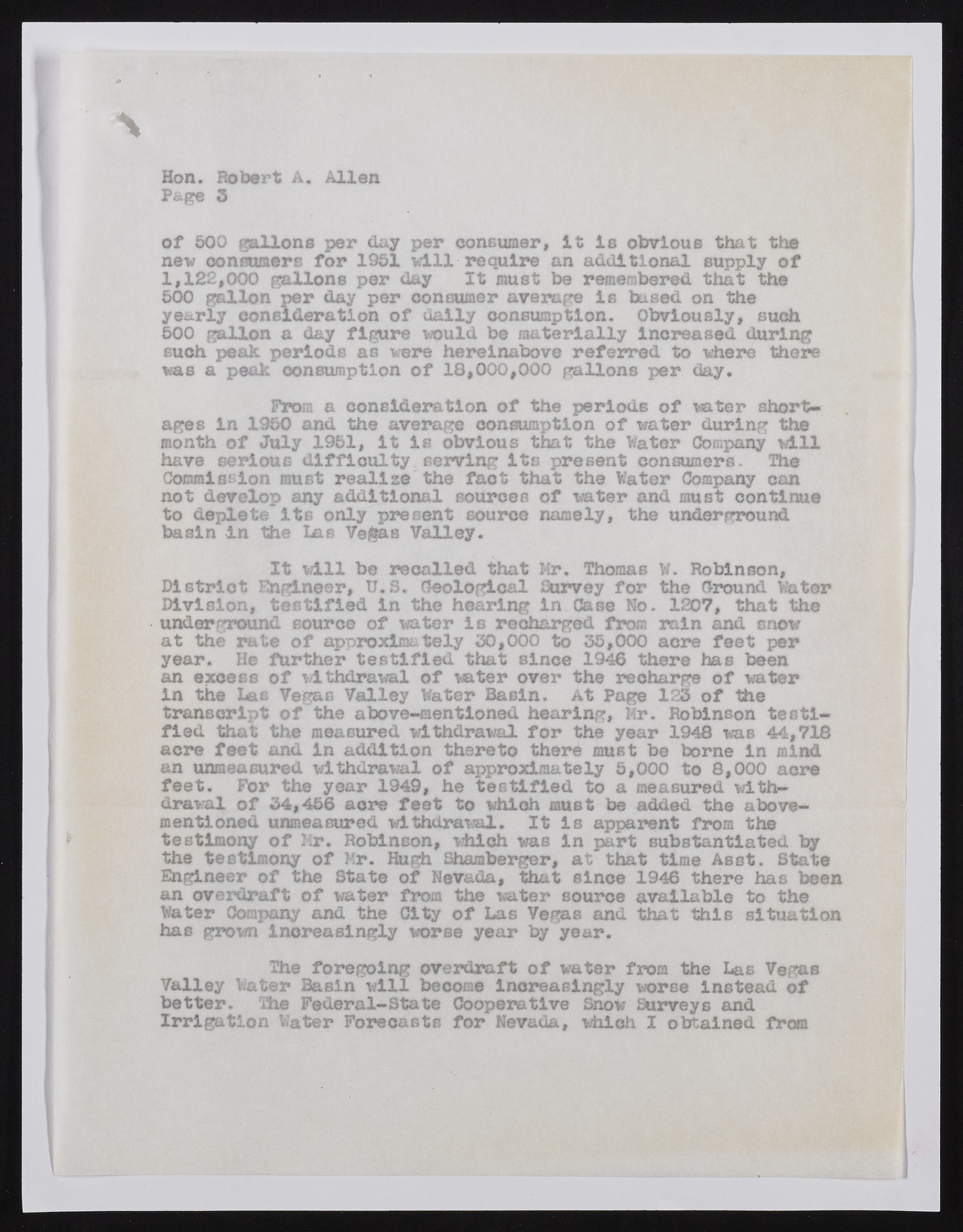Copyright & Fair-use Agreement
UNLV Special Collections provides copies of materials to facilitate private study, scholarship, or research. Material not in the public domain may be used according to fair use of copyrighted materials as defined by copyright law. Please cite us.
Please note that UNLV may not own the copyright to these materials and cannot provide permission to publish or distribute materials when UNLV is not the copyright holder. The user is solely responsible for determining the copyright status of materials and obtaining permission to use material from the copyright holder and for determining whether any permissions relating to any other rights are necessary for the intended use, and for obtaining all required permissions beyond that allowed by fair use.
Read more about our reproduction and use policy.
I agree.Information
Digital ID
Permalink
Details
Member of
More Info
Rights
Digital Provenance
Publisher
Transcription
% of 500 gallons per day per consumer, It is obvious that the new consumers for 1951 will require an additional supply of 1,122,000 gallons per day It must be remembered that the 500 gallon per day per consumer average is based on the yearly consideration of daily consumption. Obviously, such 500 gallon a day figure would be materially increased during such peak periods as were hereinabove referred to where there was a peak consumption of 18,000,000 gallons per day. Prom a consideration of the periods of water shortages In 1950 and the average consumption of water during the month of July 1951, it is obvious that the Water Company will have serious difficulty serving its present consumers. The Commission must realize the fact that the Water Company can not develop any additional sources of water and must continue to deplete its only present source namely, the underground basin in the Las Vegas Valley. It will be recalled that Hr. Thomas W. Robinson, District Engineer, IJ.S, Geological Survey for the Ground Water Division, testified in the hearing in Case No. 1207, that the underground source of water is recharged from rain and snow at the rate of approximately 30,000 to 35,000 acre feet per year. He further testified that since 1946 there has been an excess of withdrawal of water over the recharge of water in the Lae Vegas Valley Water Basin. At Page 133 of the transcript of the above-mentioned hearing, Mr. Robinson testified that the measured withdrawal for the year 1948 was 44,718 acre feet and in addition thereto there must be borne in mind an unmeasured withdrawal of approximately 5,000 to 8,000 acre feet. For the year 1949, he testified to a measured withdrawal of 34,456 acre feet to which must be added the above- mentioned unmeasured withdrawal. It is apparent from the testimony of Mr. Robinson, which was in part substantiated by the testimony of Mr. Hugh Shamberger, at that time Asst. State Engineer of the State of Nevada, that since 1946 there has been an overdraft of water from the water source available to the Water Company and the Gity of Las Vegas and that this situation has grown increasingly worse year by year. The foregoing overdraft of water from the Las Vegas Valley Water Basin will become increasingly worse instead of better. The Federal-State Cooperative Show Surveys and Irrigation Water Forecast© for Nevada, which I obtained from PHoang.e 3Robert A. Allen

